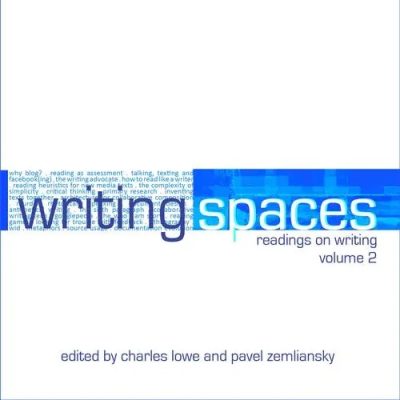17 Janice R. Walker’s “Everything Changes, or Why MLA Isn’t (Always) Right”
Writing Spaces Volume 2
In this chapter, Walker conducts a deep dive into the rhetoric of MLA citation. This chapter is useful for student writers to read through when developing a broader and deeper understanding of the historical context of citations, current challenges and dilemmas regarding when to use citations, the necessity for citations, and how to implement them well. Furthermore, Walker offers the four main elements one will need to cite their work, such as: author information, title information, edition and version information, and access information. She ends the chapter with a call for student writers to check a MLA Works Cited page to guide them in understanding who is speaking and when they are speaking.
“Academic writers . . . are held to the highest standards of reliability for sources. Thus, academic citation formats include information that will not only help a reader to locate a given source and give credit to others for their work, but that will also help a reader to determine a source’s credibility.”
\
MLA Citation Examples
Works Cited
Walker, Janice R. “Everything Changes, or Why MLA Isn’t Always Right.” Writing Spaces: Readings on Writing Volume 2, edited by Charles Lowe and Pavel Zemliansky, Parlor Press, 2011, pp. 257-269
In-text citation
“Academic writers . . . are held to the highest standards of reliability for sources. Thus, academic citation formats include information that will not only help a reader to locate a given source and give credit to others for their work, but that will also help a reader to determine a source’s credibility” (Walker 261).
References
Walker, J.R. (2011). Everything changes, or why mla isn’t always right. In Charles Lowe and Pavel Zemliansky (Eds.), Writing spaces: readings on writing, vol. 2 (pp. 257-269). New York: Parlor Press.
In-text citation
“Academic writers . . . are held to the highest standards of reliability for sources. Thus, academic citation formats include information that will not only help a reader to locate a given source and give credit to others for their work, but that will also help a reader to determine a source’s credibility
” (Walker, 2011, p. 261).
Chicago Citation Examples
Bibliography
Walker, Janice R. “Everything Changes, or Why MLA Isn’t Always Right,” in Writing Spaces: Reading on Writing Volume 2, ed. Charles Lowe and Pavel Zemliansky (New York: Parlor Press, 2011), 257-269.
In-text citation
“Academic writers . . . are held to the highest standards of reliability for sources. Thus, academic citation formats include information that will not only help a reader to locate a given source and give credit to others for their work, but that will also help a reader to determine a source’s credibility” (Walker, 2011, 261).


